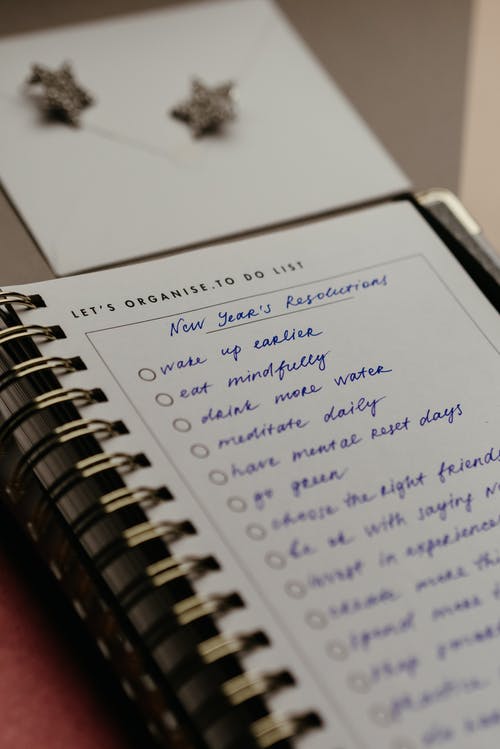
Does Connecting with Your Teen Feel Impossible? Here are Some Things to Consider.
Helpful tips from a therapist for parents with teens.

Helpful tips from a therapist for parents with teens.

By: Catherine Sangi, LPC We have all been through it before. It is that time on Sunday and we get the inevitable stomach ache and dread for the week ahead of us. The “scaries” can happen for a variety of reasons – anticipatory anxiety of all our duties and responsibilities for the upcoming week, or perhaps some disappointment that our weekend was not what we imagined it to be. Regardless of why we feel this way, here are some tricks to feel more at peace on Sunday and throughout the week. Don’t leave all the “adulting” for Sunday. Unless you enjoy grocery shopping, meal prepping, laundry, vacuuming, bleaching, etc. – don’t leave it all for Sunday. Sunday is still your day off and you deserve to relax and do what brings you joy. Try to spread these responsibilities throughout the week so Sunday is not as overwhelming (and boring) Do something fun! Whether it is grabbing brunch, going on a hike, or catching up on your shows, try to have the Sunday-Funday mindset, not the Sunday Scaries. Remain in the present. Sunday Scaries can be due to anticipatory anxiety of what the future holds. Try to remain in the present and remind yourself that Sunday is still a day that you are able to enjoy if you choose to. Struggle remaining in the present? Try downloading a mindfulness app such as headspace or calm. Gratitude Journal. It is easy to get down on ourselves about what we did not accomplish and what we did not do. Gratitude journaling is a great reflective activity to help remind us of the people, experiences, and things in our lives that we are grateful for and add joy to our day to day. Gratitude journaling can be a free-write activity, or you could purchase a gratitude journal that will provide prompts for a more structured process. Treat yourself on Monday. Have something to look forward to on Monday or Tuesday. This could be a favorite meal, going on a date, or watching that rom-com that has been on your watch list. Instead of dreading the negative things the week may bring, try focusing on positive activities you are looking forward to. As Michael Scott once said, “You guys just are working for the weekend, aren’t you? I’m working for the week.”

Amelia Elkins, LCSW, CAS Why Go to Therapy? Slowly but surely, going to therapy is starting to become more normalized. Everyone knows someone who has sought out support for reasons ranging from anxiety and depression to relationship struggles. There are a variety of reasons to seek out support and things don’t need to be an utter disaster to seek out counseling. Many begin going to therapy for life transitions, feeling stuck, or even wanting to develop better life goals or practices. Interested in reasons to attend therapy? More on that here. Finding a Therapist Can Be Overwhelming Finding a therapist can be a daunting job. Utilizing resources such as psychology today, social media, and google or yelp can be a great place to start. Some therapists accept insurance and some are private pay which is a factor to consider. I recommend folks who’ve never been to therapy to meet with at least three therapists to compare and see what feels like the best fit. After all, you may be spending a good amount of time with this person so you want to feel mutual trust, respect, and confidence in their skillset, training, and professionalism. At Thrive Counseling Denver, we value professionalism, continual training, and goal-oriented treatment. Sessions are always 50 minutes, we have a 24-hour cancellation policy, and you’ll get a text reminder 48 hours in advance. Here’s what a first session with us looks like. What to Expect >Step One: Woohoo you’re scheduled! At this time, you’ll receive a virtual intake packet which will include a disclosure statement, payment information, three mental health screenings, and an intake questionnaire. A disclosure statement includes licensing info for each therapist, reporting information, and confidentiality. The mental health screenings are a series of questions which help us as therapists to better understand what you’re struggling with. Lastly, the intake questionnaire is a list of questions exploring your symptoms, what brings you in for therapy, what you’re looking for, and your familial history. >Step Two: It’s time to attend the first session in person or via telehealth. If your first session is via telehealth, you’ll be emailed a link the day before the session, which you will click on at the time of your appointment. If you attend in person, you’re welcome to come a few minutes early to enjoy a complimentary sparkling water, Nespresso, water, or tea. We have sound machines going in the lobby to ensure confidentiality from those in session. >Step Three: Regardless of whether it is over telehealth or in person, here are some important things to know about your first session. The intake session will include reviewing the disclosure statement, processing your intake questionnaire you completed online, and establishing goals for treatment. It’s important to remember that it is completely normal to feel nervous during the first session and it’s your clinician’s job to help you feel comfortable. Our first priority is emotional safety, acceptance, and creating a space of nonjudgment. It’s also okay to come to the first session and not feel clear on your goals. Your therapist can help you get clarity and define goals for treatment. Some questions you may want to ask at the first session include: >How often do I need to attend? >Does your skillset match the goals I would like to work on? >What is the layout of an average session? >Do you provide homework or assignments outside of session? >Step Four: Time to decide which therapist feels right for you and to get started with working on your treatment plan. Therapy isn’t for everyone, but is has helped countless individuals feel not only supported and validated, but also re-energized about their life direction. More on that here. If you have any other questions, reach out to us today!

Amelia Elkins, LCSW, CAS “We are not working from home. We are working with home” -Esther Perel Why is Working From Home Taking a Toll? With all the changes over the past two years, working remotely has become much more popular. There are so many advantages to working from home including the flexibility to travel, attend appointments, and take care of household items. Even the stress of a daily commute is eliminated. However, with these benefits comes unexpected setbacks. Just to name a few: not being able to separate from work, working more than you would in an office, and feeling isolated. And we know what feeling isolated from others can lead to–depression. I recently had a client disclose that she feels she gets the most support and connection out of her day from going to a workout class. Not from her work colleagues, with whom she spends most of her day. Just as we value relationships with the people in our life, our work relationship should be given the same attention. How to Cope if Working From Home is Negatively Impacting Your Mental Health If you feel that working from home these last few years has been taking a toll on you, here are some tips to improve your relationship with work: Create Separation. This seems to be one of the most helpful tools for folks working from home. Having a separate space. Even if it’s a tiny desk in front of a window where you’re able to work daily; this can help the ritual of easing in and out of work to feel more manageable. Easing into your day by having a warm beverage and closing the day by shutting down your laptop or even cleaning your space can feel like a “mini commute.” While it can be tempting to work in pajamas from the couch, getting somewhat ready or cleaned up in the mornings followed by working at the same space can help reduce stress and create distance between home and work. More on this here: https://www.inc.com/marcel-schwantes/5-remote-work-practices-for-better-work-life-balance.html. Take Breaks. Research states taking breaks every 60-90 minutes is beneficial for productivity (https://medium.com/mind-cafe/the-science-of-taking-breaks-at-work-to-help-boost-your-productivity-ec3e1f47c818). Scheduling in a ten-minute break to walk around the block, 30 minutes for lunch outside, or even five minutes for stretching is important and necessary. Previously, a lot of folks would engage in small talk or go find a snack in the office but working from home can make it easy to work more because there aren’t other coworkers around. Being intentional about breaks is necessary for reduced stress, higher energy levels, and level of focus. Increase Communication. What is and isn’t working for you while working remotely? Depending on if you work for a large company or just have one other co-worker, check in with each other. Here are some important questions to ask: How can we support each other working remotely? Can we create in person meetups to increase connection? What incentives were provided in office that could be switched remotely? Interested in learning more tools for communication at work? Check out these tips: https://zenkit.com/en/blog/workplace-communication-tips-and-tools-for-good-communication/.

By: Bobby Dunham, MA, LPCC Is Your Use of Alcohol Hurting or Helping? Many of us remember the intoxicating loss of inhibitions the first time we drank alcohol. That feeling of “taking the edge off” may have allowed you to feel more comfortable in your own skin while in social settings. Using alcohol to reduce the stress of social situations is completely normal, but when does it begin to ultimately lower our confidence rather than heighten it? In my experience working with my clients as a mental health counselor, here are some typical warning signs that might mean your use of alcohol is starting to negatively impact your functioning. You regret your behavior the next day Okay, so you wake up the morning after a great night out. If you are looking back and cringing, thinking about something you may have said or done, then this a good sign that the alcohol is actually hurting your self-confidence. When we feel that our behavior with alcohol is no longer up-to-par with our own standards for ourselves, then it might be time to reevaluate what alcohol is really doing for us. You don’t feel as confident as you used to without alcohol If someone becomes so used to, and dare I say, reliant on alcohol to feel comfortable in social settings then this could suggest avoidant or maladaptive behaviors to stress or social anxiety. Alcohol can boost a specific type of confidence, but it should never become a requirement. Alcohol is distracting you from your goals One of the ways we build self-confidence is to achieve specific goals we have set for ourselves. We all know the feeling of disappointment when we have failed to accomplish (or even begin) a goal we have set. If alcohol use has become a common barrier or hinderance to achieving your goals, then it is going to also hurt your long-term self-worth and should maybe be cut out or limited. Your physical and/or mental health is being damaged Beer bellies are a real thing and, for most of us, they don’t make us feel more confident. Alcohol is full of empty calories and adds to anxiety and depression, so if you have found that you have gained weight, feel more anxious, or are just feeling lousy from the amount of alcohol you consume, then it might be time to make changes in your relationship with alcohol. You Might Be Asking Yourself: Now What? Get clarity. These are just some of the signs that I have heard from clients that their relationship with alcohol isn’t what it used to be and just isn’t adding to their confidence anymore. Luckily, identifying the cause of the problem is a huge step for change and with support, (and maybe some virgin cocktails at those happy hours), behaviors and self-confidence can be rebuilt. If you are still unsure if you might need to reevaluate your relationship with alcohol, here is a link for a quiz about your use to hopefully stimulate some deeper insight. https://www.verywellmind.com/could-you-have-an-alcohol-abuse-problem-3894213 Ask for help. Finally, if you feel that you need help decreasing your dependence on alcohol and learning some replacement behaviors, reach out for help. Starting the process of changing your relationship with alcohol can be overwhelming. There is no shame in asking for support from a professional.

Three Tips to Change Your Relationship with Social Media Right Now Amelia Elkins, LCSW, CAS Are you finding yourself mindlessly scrolling on a daily basis? Does your mood negatively shift after being on social media? Do you look up and realize you’ve been lost in the feed for a whole hour? If any of these are true for you, it may be time to shift your relationship with social media. As therapist, I see folks who not only become anxious and/or depressed from too much time on social media, but also dependent. There are plenty of challenges with social media but also plenty of positives as well. Here are three tips to reset: >Who You Hang Out With is Who You Are, Who you Follow is Who You Become Just as we cleanse our life from unhealthy food or beverages, we should also cleanse the content we are following. Are the folks you’re following making you laugh, feel good, or even motivated? Or are you left feeling bad about yourself, comparing your life, or with a sense of dread? Look to follow a variety of social media accounts that interest you and connect with your values as a way to reduce negativity. And of course, remember, everyone in life struggles in life and social media is a way to show the world the positive in our lives so don’t believe everything you see. Interested in the psychology behind following? More here: https://displaypurposes.com/blog/why-people-follow-influencers-what-makes-people-follow-you/. >Space: Take a Breather I highly encourage all of my clients who are active on social media to consider taking at least a week off here and there. During this time, taking stock of how you feel, what you notice, and your ability to stay present. Is this a challenge? Do you feel a strong pull to check your accounts? What are you missing out on in life by being glued to your phone? And most importantly, how do you feel after the week is done? A sense of relief? Possibly more relaxed? Just as we take space from folks in our lives who are creating stress, taking a break from social media should also be important. Still not convinced? One study found that too much time on social media is linked with depression: https://onlinelibrary.wiley.com/doi/10.1002/da.22466. >Boundaries: Are You Controlling Social Media or is Social Media Controlling You? Lastly, as you reincorporate social media back into your routine after a break, set a daily time limit for yourself to reduce rabbit holes. Check in with yourself and notice what feels like a healthy amount of time for yourself. If setting time boundaries independently feels too challenging, here’s a list of apps which will do this for you: https://www.mothermag.com/screen-time-limit-apps/.

Four Questions to Reset Any Type of Relationship Amelia Elkins, LCSW, CAS “Connection is why we’re here: It gives purpose and meaning to our lives” -Brené Brown Relationships serve so many purposes in our lives. Friendship, family, romance, and workplace dynamics are just a few examples of the types of relationships which help us feel connected. Support, laughter, play, consultation, and love are just a few reasons we have relationships in the first place. The benefits of connection are endless and research has found connection improves physical health and mental well-being (http://ccare.stanford.edu/uncategorized/connectedness-health-the-science-of-social-connection-infographic/). As with anything in life, relationships also take commitment and maintenance. Here are four basic but important questions to enhance any type of relationship: What is going well in the relationship? How have we persevered to this point? Whether a friend, coworker, or intimate partner, it can be easy to focus on the negative. Exploring the positive aspects of the relationship is a great starting point. What feels important to work on or address in our relationship? Every relationship has challenges and by naming them connection may not only be improved but sustained. Management vs. fixing is a great place to start (https://www.gottman.com/blog/managing-vs-resolving-conflict-relationships-blueprints-success/). What is one new activity we can commit to together this month? How may engaging in something new improve the dynamic? Again, whether this is a work outing or new date night idea, fresh perspective can lead to new energy and commitment. Are there any ways to improve communication moving forward in our relationship? Focusing on active listening means being present, engaged, and interested. Basics like eye contact, body language, and reducing distractions such as electronics are a great way to reset the communicative relationship. More on this here: https://psychcentral.com/health/steps-to-better-communication-today#practical-tips.

What to know about panic attacks and how to deal with them.

I-Statements can help improve your communication in any area of life!

Here are a few things to keep in mind if you want to make New Years resolutions and keep them!

By: Catherine Sangi, LPC Do you feel as though you are always in a power struggle with your child or teen? If so, here are some tried-and-true techniques to more easily manage behaviors and get your relationship with your child back on track. Counting to 3 Count ONLY to 3, and no half numbers. If the task is to pick up their toys the script might go something like this: Example: Parent- “It is time to pick up your toys” Child- “one more minute” Parent- “This is the second reminder. It is time to pick up your toys” Child- *ignores you* Parent- “This is the third reminder, now *insert consequence here*” Important Things to Know About Consequences The time must fit the crime. Make it realistic. Be sure you can follow through. Is it realistic and appropriate to go to bed five minutes earlier for not picking up toys? Yes Is it realistic and appropriate to take away their tablet for a week for not picking up toys? No Be Consistent! If you consistently lack follow-through with consequences, then your child knows that the consequences do not matter and they will continue to break the rules. Prioritize Quality Time What do kids want? Your undivided attention. Time-out is not the time to get it. It is important not to bargain or argue with your child. Give the consequence and walk away. Did they say “I hate you”? Take a deep breath and keep walking. It is OKAY for your child or teen to get the last word. It doesn’t mean you have lost control. Being able to keep your ‘cool,’ even when your child says something that triggers hurt feelings or anger, means that you are the one IN control. It is important to set aside at least 15 minutes per day with each of your children doing whatever it is that they want. Do they want to show you the newest Fortnite dances? Do they want to paint their nails? Do they want to watch a TV show? Do they want to play cards? Whatever it is (if it is age appropriate, of course), then do it with them! Homework time after school does not count as quality time spent together. The goal is that the more built-in positive attention we give our kids then the less negative attention they will seek from us. Talk about it! Before trying any new behavior system it is important to let your child know what to expect. Kids like structure and knowing what is expected of them. Make sure you *make-believe* practice it with them so there are no surprises Expect a Little (or a lot) of Push-Back With any new boundary you can expect some increase in behaviors. This is totally normal as they are trying to push the boundary back to where they are used to it and like it. It is your job to hold that boundary anyway. Be Honest With Yourself If you read these tools and think to yourself, “But I’ve already tried that!” Try to take a hard look at how long you gave that tool a chance, and how consistent you were able to be. Parents can go into assigning rules and consequences with the best of intentions, but then find themselves struggling to maintain boundaries while also showing an appropriate amount of warmth. But here’s the thing–being honest with yourself does not mean beating yourself up. There is not a enough time or energy each day to be perfect. You just need to be good enough. And if you are reading this article to learn some parenting tips, you probably already are.

Managing your sobriety and mental health can be a challenge. Here are some things to consider.